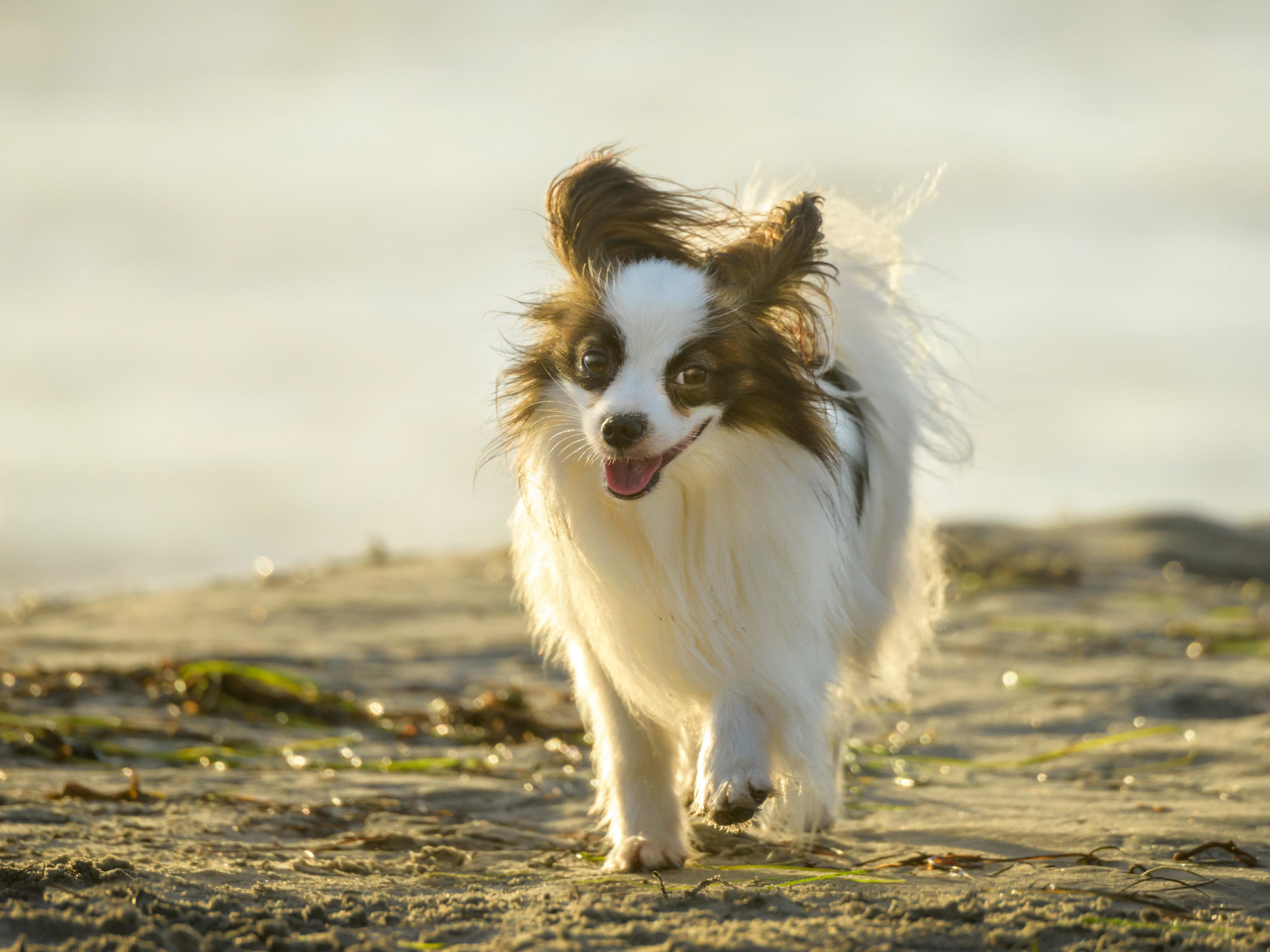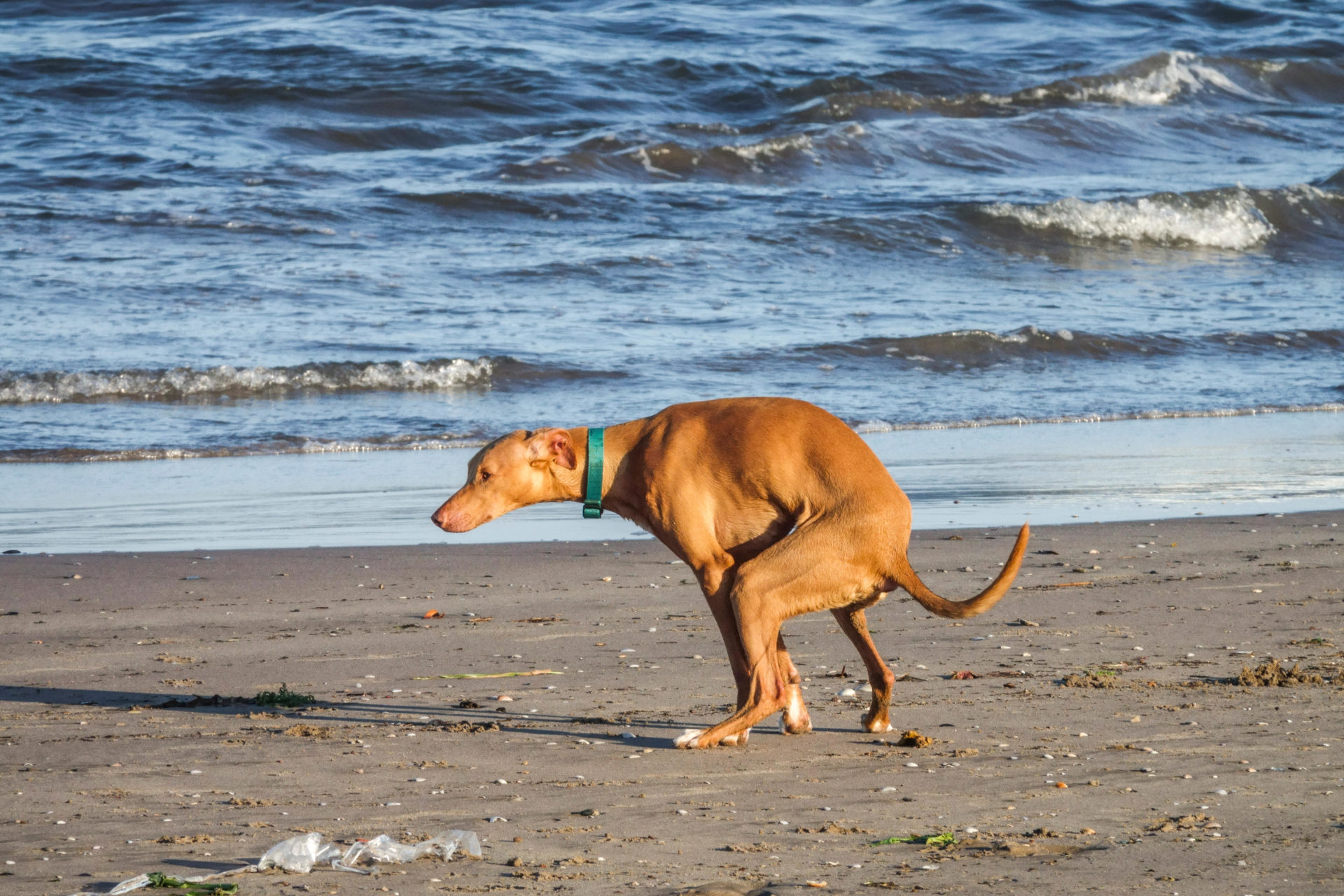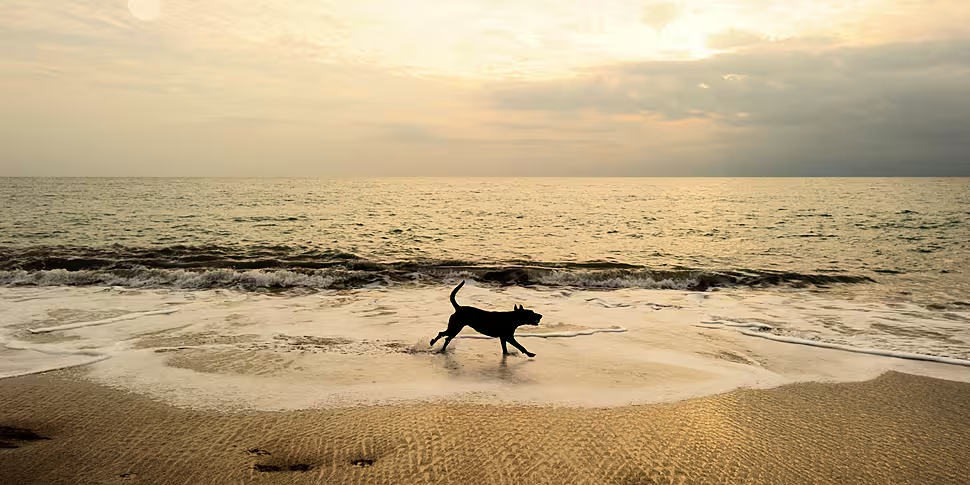There are calls for fresh awareness campaigns after a new study found dog poo was present in around half of ‘poor’ bathing water quality assessments on Dublin beaches.
The study was carried out by the Dublin Bay Bathing Water Task Force, which was set up to tackle the fall in water quality at Merrion Strand.
The report notes that authorities have been monitoring water quality in Dublin Bay since 1988 and the latest EPA report found that overall water quality in the bay is of a ‘good’ standard.
In a bid to better understand the causes of ‘poor’ bathing water quality assessments in the bay, the taskforce tested all ‘poor’ water quality assessments to better understand the causes.
 Papillon dog at Ocean Beach dog beach. Image: Mark J. Barrett / Alamy Stock Photo
Papillon dog at Ocean Beach dog beach. Image: Mark J. Barrett / Alamy Stock PhotoThe ‘microbial source tracking’ method it used tests for faecal matter in the water and determines where it is likely to have originated.
The tests found that traces of dog poo were in the water in around half the ‘poor’ bathing water quality assessments studied.
Traces of human faeces were found in one-quarter of the assessments, highlighting the ongoing issues with the city’s sewage infrastructure.
Gull poo was found in one-fifth of the assessments, while the remaining 5% of the faecal matter was ‘unidentified’.
 Dog pooping on the beach, Valencia Spain sea
Dog pooping on the beach, Valencia Spain seaThe report notes that dog and bird poo on beaches can “significantly impact water quality” – and suggests that one dog poo has the potential “to pollute a volume of water the size of a tennis court”.
It also warns people not to swim at Dublin bathing spots for at least two days after significant rainfall due to the risk of sewage overflows.
The report notes that, while dog poo is not the only pressure on Dublin’s bathing water quality, it a source that can be easily removed by the pet owner to prevent contamination.
The authors are urging dog owners to keep their dogs under control on the beach and to always bag and bin their mess.
They are warning people never to bury it in the sand.
People who fail to pick up their dog’s dirt in a public place can face fines of up to €150 or, if they are taken to court, up to €3,000.









